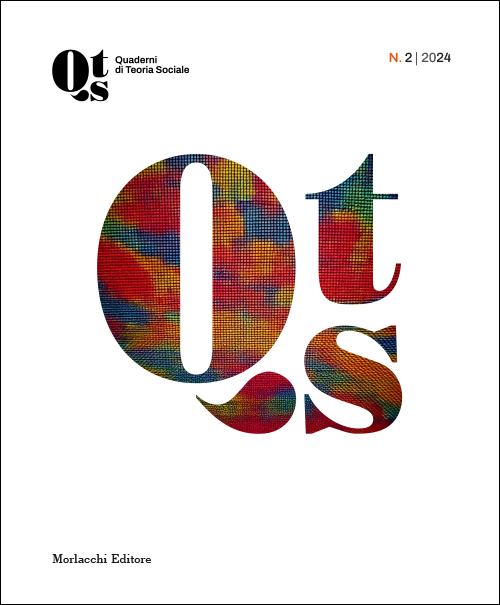L’intrigo del comprendere. L’ermeneutica fenomenologica di Paul Ricœur per la teoria sociale
DOI:
https://doi.org/10.57611/qts.v4i2.479Parole chiave:
hermeneutics, phenomenology, understanding, interpretation, social actionAbstract
This essay emphasizes the significance of Paul Ricœur’s legacy for social theory, specifically his essential contribution to the examination of interpretative processes. After briefly discussing the Methodenstreit in relation to the dichotomy between explanation and understanding, I explore the similarities and differences between the cognitive approaches of understanding and interpretation, highlighting the unique and innovative contribution made by Ricœur’s phenomenological hermeneutics in this regard. In the second part, I consider some of the points presented by the French philosopher in Du texte à l’action (1986), analyzing the relationship between action and language on one hand, and the hermeneutic circularity between understanding and explanation on the other. My conclusion comments on the Ricœurian hypothesis of an anthropological model based on the hermeneutics of human action. This is understood both as an interpretative process for acquiring knowledge of human world, which requires continuous mediation between the procedures of understanding and explanation, and as a transformative paradigm for social action. Through processes of configuration and reconfiguration of meaning, new possibilities of being-in-the-world are opened up.
##submission.downloads##
Pubblicato
Fascicolo
Sezione
Licenza
Copyright (c) 2024 Daniele Garritano

Questo lavoro è fornito con la licenza Creative Commons Attribuzione - Non commerciale 4.0 Internazionale.
<a rel="license" href="http://creativecommons.org/licenses/by-nc/4.0/"><img alt="Licenza Creative Commons" style="border-width:0" src="https://i.creativecommons.org/l/by-nc/4.0/88x31.png" /></a><br />Quest'opera è distribuita con Licenza <a rel="license" href="http://creativecommons.org/licenses/by-nc/4.0/">Creative Commons Attribuzione - Non commerciale 4.0 Internazionale</a>.






